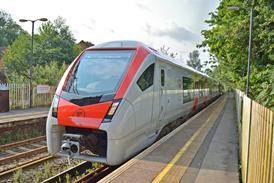INTRO: Research work is increasingly carried out by suppliers and industry, but railways still have an important role in co-ordinating innovation and the development of new ideas. It is vital that performance specifications incorporate railway experience of operations and maintenance
BYLINE: Dr Rainer Schmidberger
Director of Research & Development,German Railway
THE SHAPE of research and development on Europe’s railways has changed dramatically in the last decade. Whereas research, development and operation were once concentrated in the hands of the railways, today we are increasingly seeing the use of vehicles and infrastructure components developed by the supply industry. Allowing operators to concentrate on their core function of moving people and goods can be seen as a logical development.
However, developments in recent years have shown that railways cannot abandon research completely, at least from the perspective of managing innovation and relating ideas to practical applications. So the role of R&D departments is changing. Today their output is increasingly found in the development of specifications and tender documents.
If this approach is to be successful, it is crucial that the specifications incorporate practical experience of operations and maintenance, and beyond that they must ensure there is no mismatch at the critical wheel-rail interface. I see the railway companies remaining as the drivers for technological advances, and in many cases the crucible of innovation. Compatibility will always remain a crucial constraint.
The need for railways to maintain close contact with the supply industry has proved to be specially important. Rail vehicles are generally developed to meet specifications laid down by the operator. But all too often, when they are handed over, much effort is needed to deal with teething troubles before - and after - they actually enter service. Without the experience and practical operating know-how of the railway’s own engineers, it would not be possible to put vehicles into service.
For those attending this month’s World Congress on Railway Research in K




















